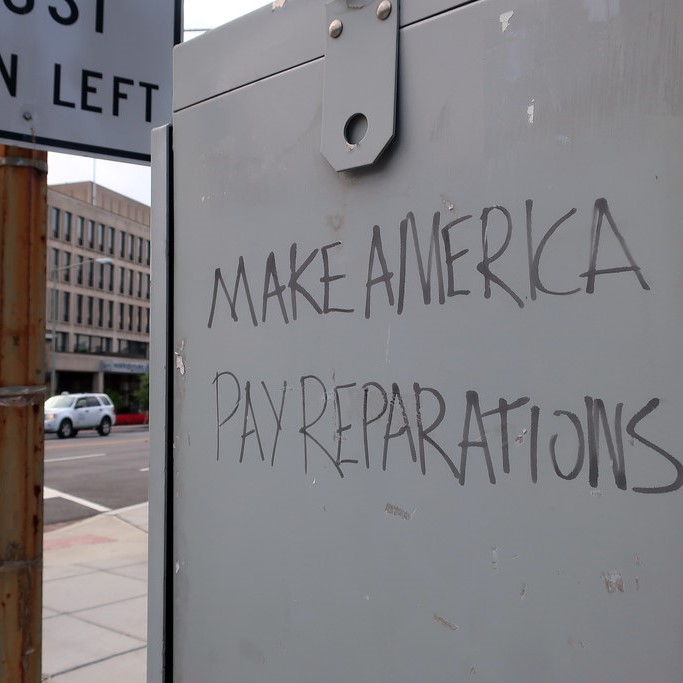On June 19th, a few of the other FMF interns and I met at the Rayburn building bright and early to gather for the House congressional hearing on H.R. 40, a bill which establishes the Commission to Study and Develop Reparations Proposals for African-Americans. The bill, introduced at the beginning of 2017, was given the name H.R. 40 for its symbolism of 40 acres and a mule, the compensation that recently freed enslaved people were expecting as recompense for 246 years of unpaid labor. Unfortunately, this promise was broken and those enslaved were never compensated for their work. The goal of H.R. 40 is to rectify that mistake and begin to close the gaps in quality of life, like economic and health outcomes, that continue to vastly disadvantage African Americans.
When we arrived at 7:30 that morning there weren’t many other people waiting, and we were filled with anticipation and excitement that we might be in the room to hear the likes of Danny Glover and Ta-Nehisi Coates speak on behalf of reparations. However, we weren’t alone for long. At one point, the crowd gathered for the hearing was so large it obstructed the hallway and Capitol Police attempted multiple times to control the crowd to no avail. Few structures were put in place to manage the crowd of people, which struck me as surprising as the hearing had been so widely publicized across social media; to see such a lack of organization made little sense.
In the midst of all the confusion, we were informed that the room for the hearing had been filled—despite having seen only a few people enter the room. Nevertheless, we were redirected to one of three overfill rooms. Being in that room, surrounded by Black people on Juneteenth—the 154th anniversary of June 19, 1865, the day that slavery officially ended in the U.S. after slaves in Texas finally learned of the Emancipation Proclamation which had come into effect two years earlier—was an especially powerful moment. We laughed and expressed our frustrations together. I knew no one in the room, but it felt like being home.
At one point during his opening statement, Coates said, “the matter of reparations is one of making amends and direct redress … to say that a nation is both its credits and its debits. That if Thomas Jefferson matters, so does Sally Hemmings …” Here, Coates gets at the heart of what reparations means—the acknowledgment and rectification of such an injustice in our nation’s history, one that extends beyond slavery, into the discriminatory policies that have shaped the centuries thereafter. Reparations mean a commitment to equality; to making sure we all have an equal opportunity to succeed. I can only hope that those undecided on reparations could see that as well.

